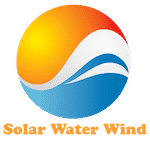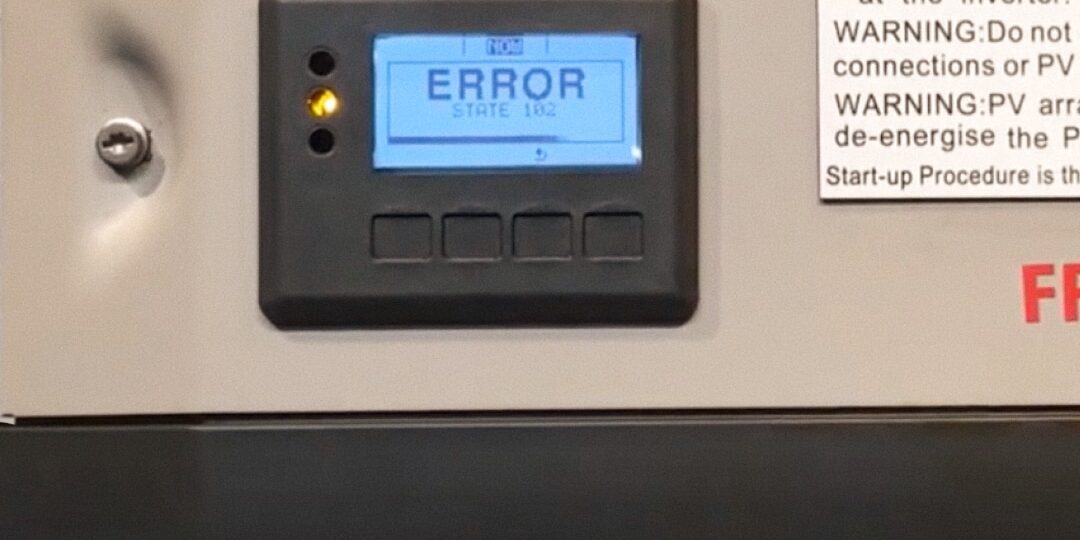Have you noticed that your solar inverter isn’t working to its full potential or has stopped working completely? In cases like this, it can be difficult to know what’s wrong and it’s often hard to decide whether the inverter needs repairing, if repairs are even possible or if you should replace the whole system.
Inverters are absolutely essential to solar panel systems and are considered to be the system’s heart and brain, which is why it’s important to get your inverter back up and running as soon as possible. In this blog, we break it down so that you know what signs to look for when it comes to inverter issues, as well as repair and replacement options.
Solar inverter basics
Before we dive into the topic, let’s first review the basics of solar inverters. Solar inverters work by converting direct current (DC) electricity (the electricity that the solar panels generate) into alternating current (AC) electricity (the electricity that the grid uses). The amount of electricity that your solar panels generate will be affected if your solar inverter isn’t working at its full potential.
Conventional inverters vs Micro inverters
The two types of solar inverters available on the market include conventional and micro inverters.
Conventional inverter
These converters have a lifetime of approximately 10-12 years. If one panel is affected in any way (eg. weather damage), the output of every single panel will be reduced.
Micro inverter
Micro inverters are our most preferred option. They can have a much longer lifespan of about 25 years and are less susceptible to failure because the output of each solar panel works independently.

Reasons why inverters fail
There are a few reasons why a solar inverter can experience issues, including:
- Weather damage (eg. hail)
- Tripping circuit
- Voltage issues
- Improper installations
- Lack of or poor maintenance
Signs that your inverter needs to be repaired or replaced
If you’re worried that your system has been affected by any of the above, or if you notice that your system isn’t producing as much energy as before, take a look at your inverter and look out for these signs:
- Yellow or red lights
- Flashing lights
- Error code
The inverter is broken – now what?
We understand that there can be a lot of confusion around what to do when your inverter breaks and you might be wondering whether you should repair or replace it. At the end of the day, it ultimately depends on the extent of the damage and the age of your solar system and we highly recommend that you have a professional come out to inspect the problem.
To get the process moving, we suggest that you contact a CEC-accredited solar professional and book in a time for them to come out and take a look. You should also let them what error codes you have seen on the inverter screen.
After inspecting the system, they will explain to you the issue that your solar inverter is facing and can advise you on the appropriate course of action. Sometimes, all your inverter needs is a deep clean and maintenance service. Other times, your inverter may need to undergo extensive repairs.
If it comes to it, you can have your inverter replaced. Be sure to check your warranty and consider the cost of replacement.

When you should upgrade your system
If the solar repair technician has found that your inverter is facing some serious issues and the repair cost may not be worth it, or if your system is coming to the end of its lifetime, a solar system upgrade is a great option for you! A system upgrade will require having your current system removed by a professional and redesigning a brand new solar system. The best route of action here is to book a consultation with solar experts (like us!) for advice.

If you’re worried that your solar inverter may need a repair service or replacement, please don’t hesitate to give us a call today!
Central Coast: 02 4315 2391


